The Secret History of Hollywood's Golden Age Gas Station Hustler, Scotty Bowers
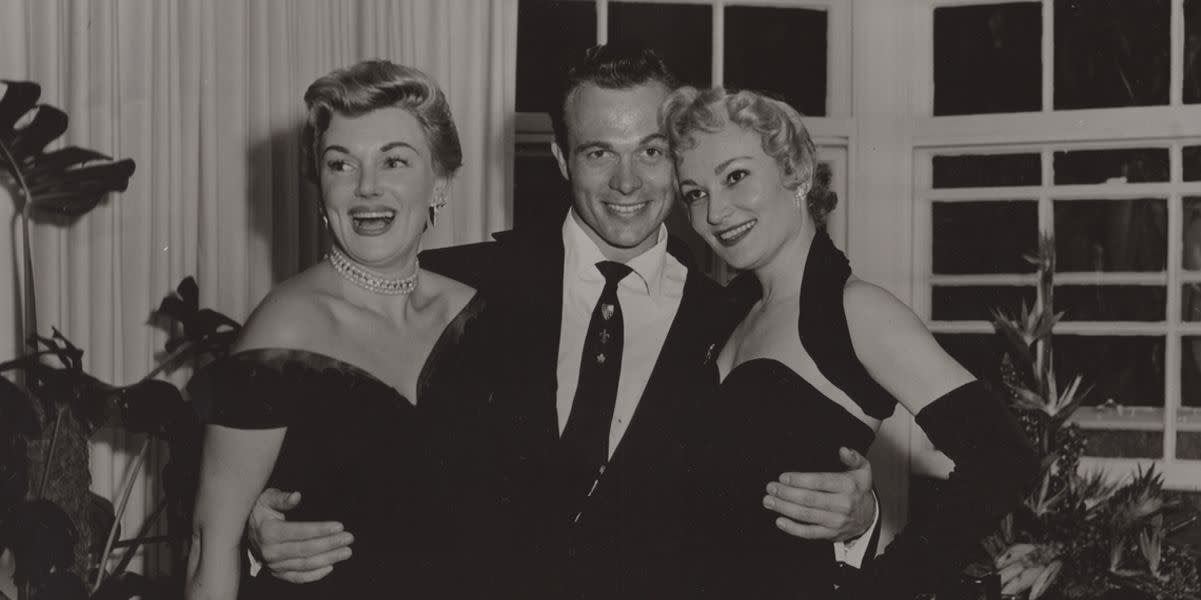
Picture a 1940s gas station that doubles as a pickup spot, complete with clandestine hetero and homosexual encounters, a trailer out back for secret rendez-vous, and young, strapping men offering their “services” for $20 apiece. That simply sounds like a story too juicy to be true. Well, not if you’ve heard of Scotty Bowers.
In the Golden Age of Hollywood, Bowers, an Illinois native, arranged sexual assignations (both gay and straight) for some of the world’s biggest stars. Think everyone from Katherine Hepburn to Cary Grant to the Duke and Duchess of Windsor. And he did it from the gas station where he worked, right on Hollywood Boulevard.
In the new Netflix series Hollywood, we meet a character named Ernie, played by Dylan McDermott, who conducts similar business out of the “Golden Tip Gas Station.”
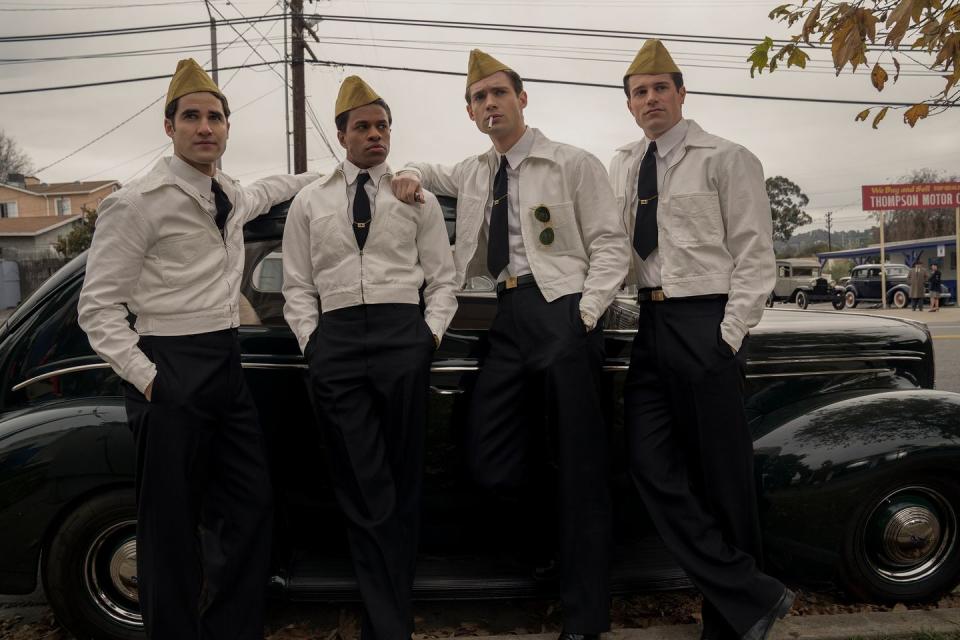
Hollywood provides a revisionist history of the Golden Age of Cinema, with producer Ryan Murphy adding an idealized spin on the era. However, the Golden Tip is one of the few pieces of the story that does not get such a rosy gloss. In light of the new series, we decided to take a look back at the real-life Bowers, and some of the key differences between McDermott’s Ernie and the real man behind the character. Perhaps the gas station brothel was not nearly as nefarious as it sounds.
Who was Scotty Bowers?
In the years following World War II, it was a crime to be gay. Hollywood, once an epicenter of sexual freedom, participated in “straightwashing,” or erasing gay desires and narratives from its history and present. This forced gay men and women, especially those in the public eye, underground and thus brought about Scotty Bowers.
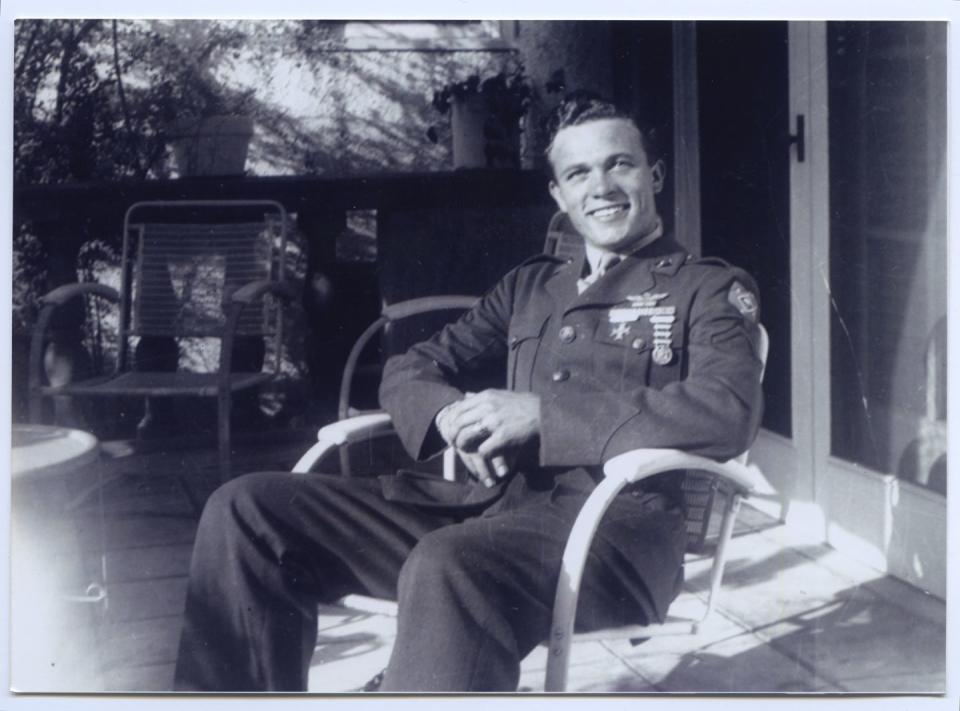
Bowers acted as a procurer and protector for these individuals, arranging sexual encounters for some of Hollywood’s biggest names, who were not able to openly express their desires. He also arranged heterosexual liaisons and almost anything else his clients wanted.
“He was a guy who was out to have a good time," says Robert Hofler, author of The Man Who Invented Rock Hudson, a biography of Hollywood agent and power broker Henry Willson, who personally knew Bowers. “There was nothing complicated about it, there was nothing guilty about it, there was nothing dirty about it. This was the most natural, wonderful thing in the world.”
Bowers remained silent for decades, until 2012, when he released his memoirs, entitled Full Service: My Adventures in Hollywood and the Secret Sex Lives of the Stars. This book was followed by a critically acclaimed 2018 documentary, Scotty and the Secret History of Hollywood, directed by Matt Tyrnauer.
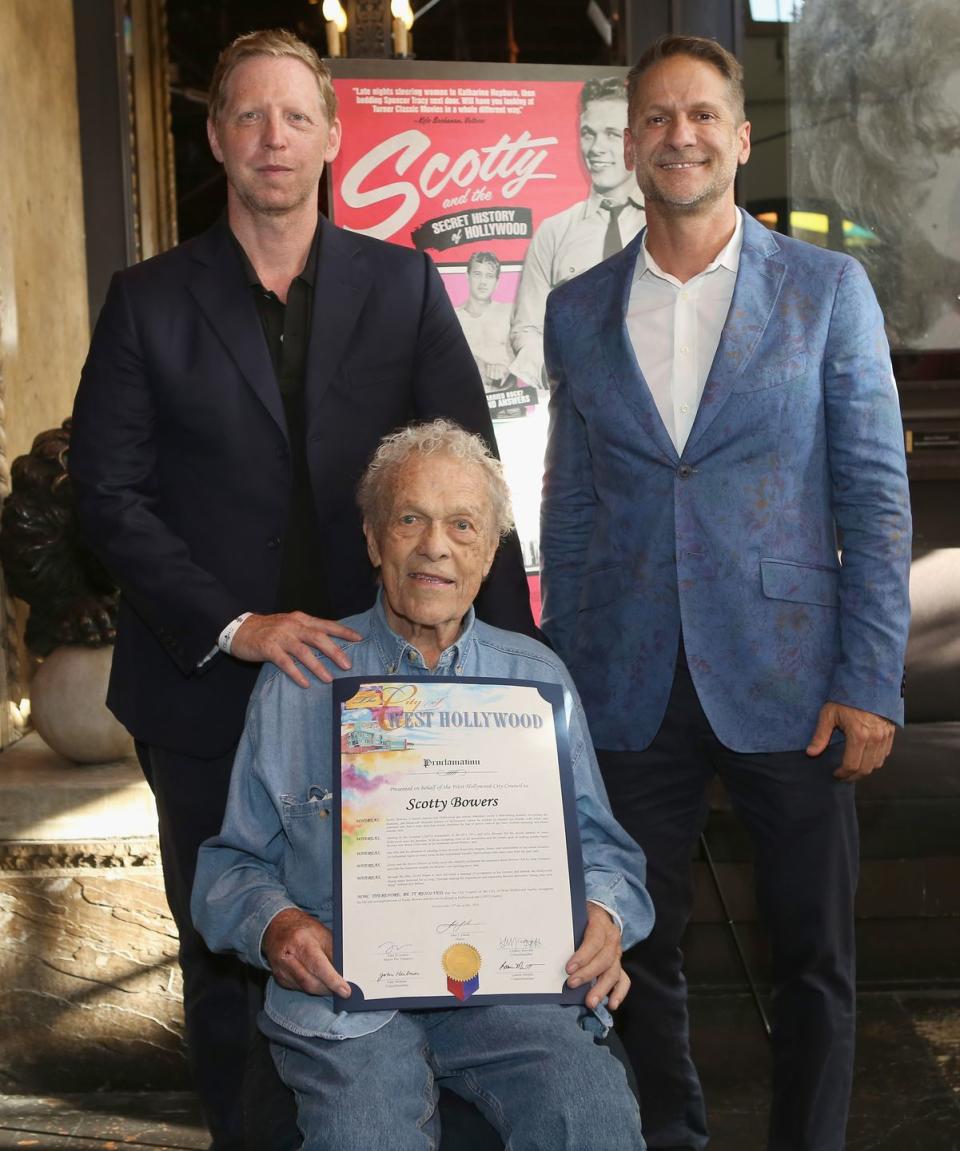
Throughout his life Bowers worked odd jobs, including bartending and his own sex work. According to the documentary, Bowers was even interviewed by renowned sexuality scholar Alfred Kinsey (the inventor of the famed Kinsey scale) for being remarkably sexually fluid. Bowers preferred the company of women, but, unlike Hollywood’s Ernie, was not exclusively heterosexual.
His endeavors eventually lead him to a certain Hollywood crowd. According to Bowers, he arranged sexual paramours for Cary Grant (including having sex with with Grant and Spencer Tracy individually, as a threesome, and with "a buddy"), set up Katharine Hepburn with over 150 women, had a three-way with Lana Turner and Ava Gardner at Frank Sinatra’s house, and slept with FBI directer J. Edgar Hoover (who was dressed in drag). He garnered even more notoriety due to his friendship with director George Cukor, also featured in Hollywood for his famed parties, rampant with gay affairs.
"Frankly," Bowers wrote in his memoir, "I knew Hollywood like no one else knew it."
Not Your Average Pimp
In the first episode of Hollywood, Jack Castello (David Corenswet) starts working at the Golden Tip, which he thinks is just a gas station. He soon meets Ernie, who quickly explains the rules of Jack’s employment with a quick, “sometimes you have to service them” double-entendre.
Ernie also outlines his role as a pimp, noting that for each “client,” he takes $100, or 50%, of the cost of the... service. That was not Bowers’ policy. As detailed by many individuals who worked for him, Bowers never took a cut of the profits. He saw himself as more of an arranger, rather than a pimp.
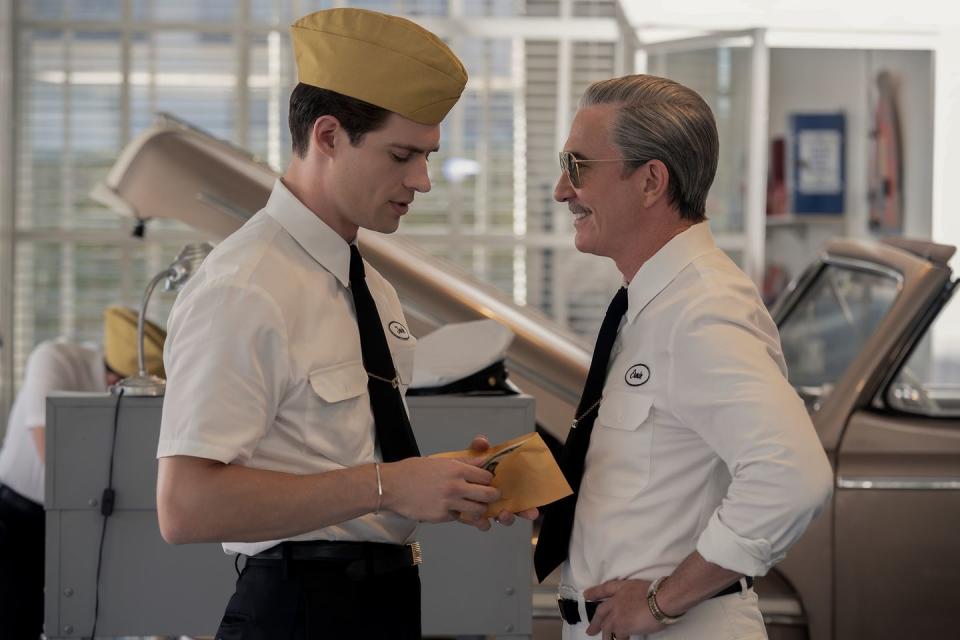
Tyrnauer interviewed many of Bowers’ workers for his documentary, all of whom spoke of him admirably, and never mentioned feeling pressured or coerced. Viewers get the sense that these men, now in their 90s, worked voluntarily, interested in the money and a good time.
“The workers and the clients—they all spoke of [Bowers] as the most admirable, unique person they knew, who was all goodness and charm and positivity. That’s not your normal moralistic take on a world of underground sex,” Tyrnauer told us.
In Murphy's Hollywood, the sex work Ernie is arranging is not quite so voluntary or affirming. In a striking scene from the first episode, Ernie tries to force Jack to have sex with Cole Porter, the famed composer. Jack objects.
“Okay, I see how it goes. You don’t get to set the terms of your employment here, Jack, I do!” Ernie yells. “So if you can’t walk into a shed and lend a helping hand to national treasure Cole Porter, you better find me somebody who can. Otherwise, no money, and you can get the fuck out of here!”
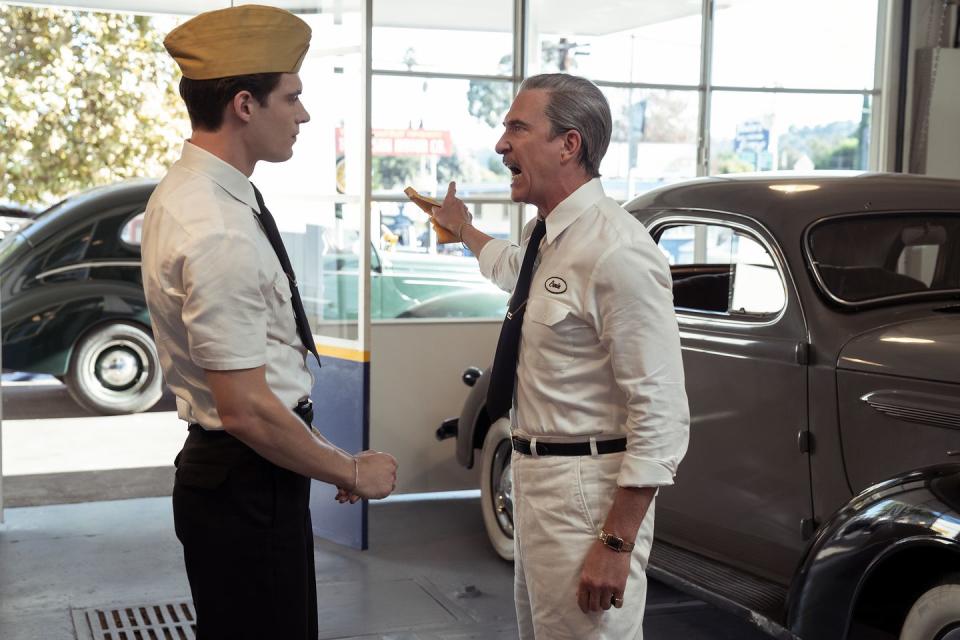
This aggression is a much darker portrayal than anything Tyrnauer found with Bowers’ workers, though Bowers did reportedly arrange an orgy for the real life Porter. In fact, Ernie's behavior in Hollywood runs much more in line with conventional wisdom about the degradation and humiliation of sex work and the darkness of the Hollywood closet.
As Tyrnauer said, there was a perception that, “sex work is exploitive and there’s coercion and fear, and [Bowers' story] was just not that. That may not be very common, but it was proven over and over again to me by talking to many many sources.”
Always a Hustler, Never an Actor
For a notorious Hollywood figure, Bowers was not actually interested in the entertainment business. He never wanted to be an actor or involved in the movies in any formal capacity. He was content with his life as it was.
Hofler argued that this disinterest in celebrity was part of what made Bowers so successful at his job. “Whenever I asked him about stars, he didn’t really have a lot to say,” Hofler noted. “That made him a successful pimp, because he wasn’t really a starfucker, he wasn’t interested in their lives.”
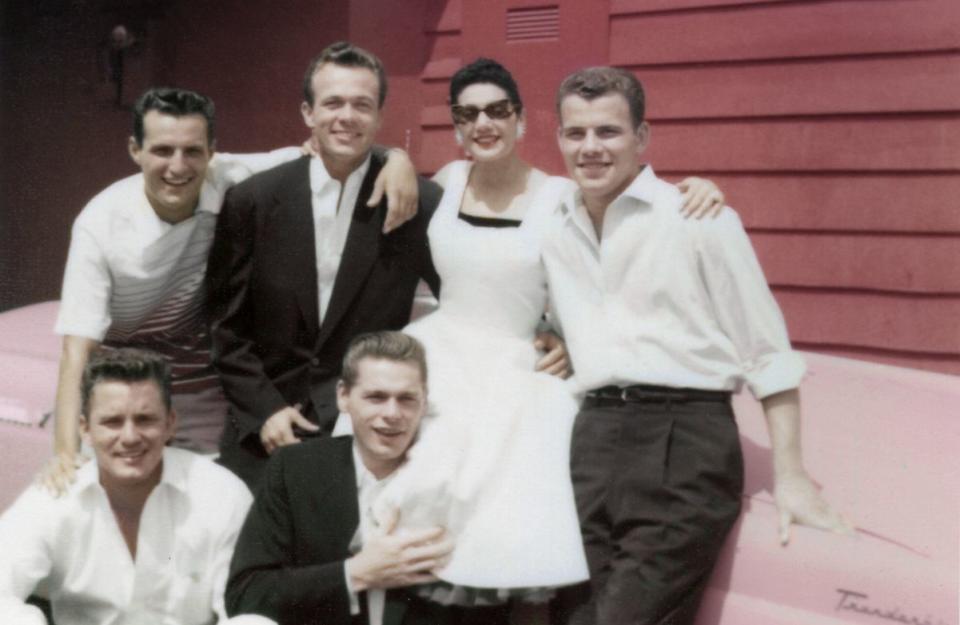
One of the fictional Ernie’s major character traits is his failed acting career. He took to the gas station as a fallback. Viewers can also sense Ernie’s desire to be in Hollywood no matter what, even if he was on the fringes.
Bowers had no such desires of stardom or fame. He also never cared enough to speak to the press. In fact, according to the documentary, on multiple occasions, Bowers turned down massive payments that would have come in exchange for celebrity intel.
“I never saw the fascination,” Bowers told The New York Times. “So they liked sex how they liked it. Who cares?”
It wasn’t until 2012, when many of the people he worked with were long gone, that Bowers began revealing his secrets. Why then? Bowers noted, “I finally said yes because I’m not getting any younger and all of my famous tricks are dead by now. The truth can’t hurt them anymore.”
Too Good to Be True?
When Bowers’ book first came out, there was much controversy over the memoir’s accuracy. How could these stories be corroborated if many of the stars in question were dead? While some individuals still doubt Bowers’ story, Hofler believes most of the book to be true.
“I think that the basic details of the book [were accurate],” Hofler said. “There are mistakes, but they’re minor mistakes, and I think those are the kind of things that maybe the ghost writer added to it to flesh out stories.”
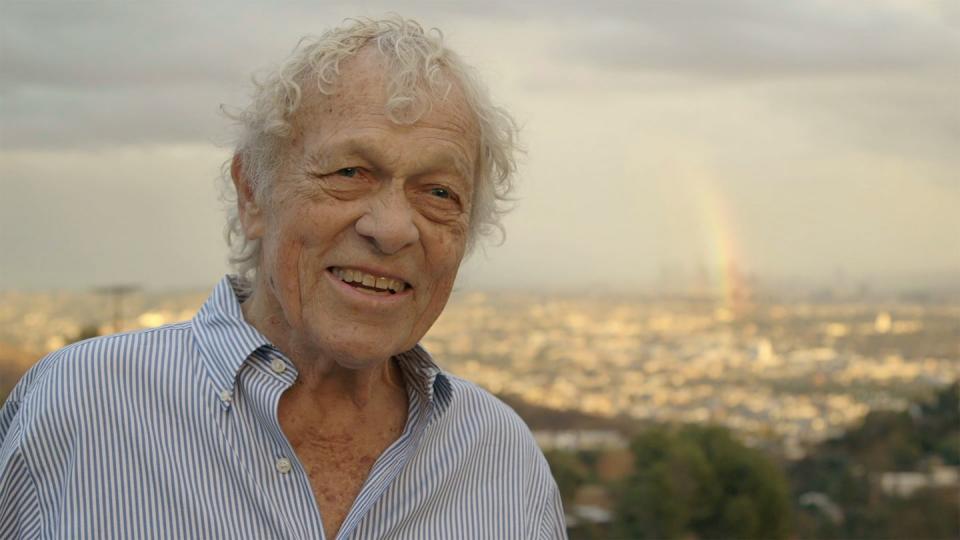
Tyrnauer, too, has said on multiple occasions that he cross-checked all stories before incorporating them into his film.
Whether you believe all aspects of Bowers’ story or not, it’s clear the man lived an unusual life. Though Bowers himself passed away last year, his story continues to offer a counter-narrative to traditional perceptions of the sex lives of Old Hollywood stars.
“[Bowers] is a shadow figure that, if you look closely in the record, he lurks there, but you need to know,” Tyrnauer said. “He’s between the lines of history. If you squint, you can almost see him.”
You Might Also Like

